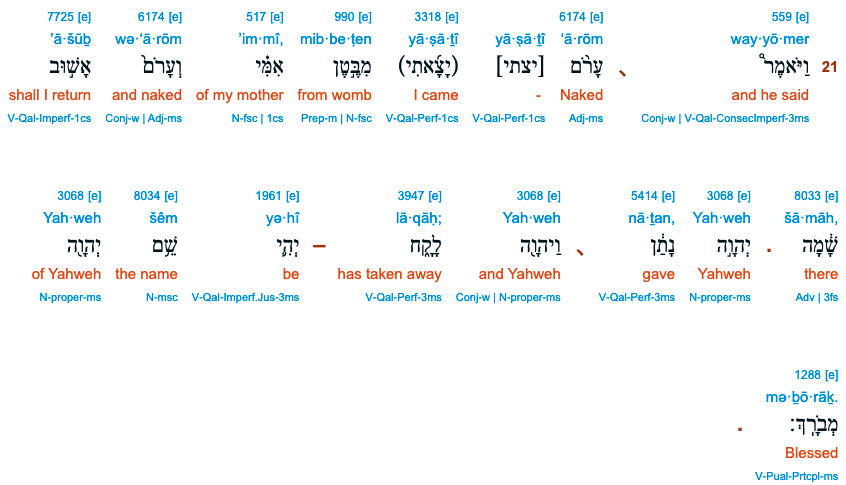Job 1:21 New International Version
and said: “Naked I came from my mother’s womb, and naked I will depart. The LORD [Yahweh] gave and the LORD has taken away; may the name of the LORD be praised.”
I thought the Tetragrammaton was only revealed later to Moses in Exodus 3:
13Moses said to God, “Suppose I go to the Israelites and say to them, ‘The God of your fathers has sent me to you,’ and they ask me, ‘What is his name?’ Then what shall I tell them?”
14God said to Moses, “I am who I am. This is what you are to say to the Israelites: ‘I am has sent me to you.’ ”
15God also said to Moses, “Say to the Israelites, ‘The LORD [Yahweh], the God of your fathers—the God of Abraham, the God of Isaac and the God of Jacob—has sent me to you.’
Exodus 6:
2 God also said to Moses, “I am the LORD. 3 I appeared to Abraham, to Isaac and to Jacob as God Almighty, but by my name the LORD I did not make myself fully known to them.
